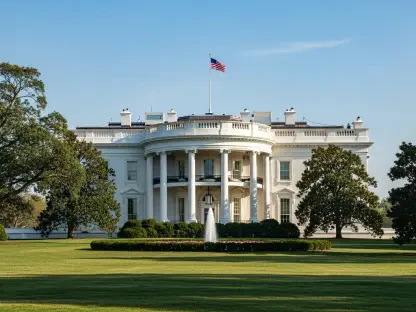Pensonic Holdings Bhd, a recognizable name on Bursa Malaysia, has issued a clarion call for strategic government backing in the upcoming 2025 Budget. Emphasizing the critical need to incorporate advanced technology and automation, the company aims to fortify the local manufacturing sector. By advocating for these changes, Pensonic seeks to ensure that Malaysian manufacturers can maintain a competitive edge in the global market. As the manufacturing landscape rapidly evolves, Pensonic underscores the indispensable role that government intervention can play in enabling local companies to thrive. Their focus on technology adoption and streamlined processes is aimed at positioning Malaysia as a hub of innovative manufacturing.
Advocacy for Advanced Technology and Automation
Pensonic Holdings Bhd (PHB) has firmly positioned itself at the forefront of promoting the integration of advanced technology and automation within Malaysia’s manufacturing industry. By advocating for these transformative changes, PHB aims to ensure that local manufacturers remain competitive against their international counterparts. One of the primary recommendations from PHB is the introduction of capital expenditure grants specifically targeting groundbreaking technologies such as artificial intelligence (AI) and sophisticated automation systems. These grants would alleviate the financial burden on local manufacturers adopting advanced technology, making it more feasible and attractive for them to modernize their operations.
In addition to capital expenditure grants, PHB has advocated for the implementation of special tax incentives to further encourage the adoption of new technologies. The company’s proposal is rooted in the belief that such financial incentives could cultivate an environment conducive to technological advancement. Ensuring that Malaysian manufacturers stay ahead in the global market necessitates substantial support for the adoption of advanced manufacturing technologies. By making these technological strides more attainable, the government can play a crucial role in paving the way for a technologically advanced and competitive manufacturing sector in Malaysia.
Incentives for Technology Adoption
To facilitate the transition towards advanced manufacturing technologies, PHB has laid out several actionable recommendations aimed at encouraging local manufacturers to modernize their operations. A key suggestion involves the introduction of special tax rates or rebates for companies that incorporate new technologies into their production processes. This targeted approach provides the financial relief and motivation necessary for businesses to update their machinery and systems. By lowering the financial barriers associated with adopting advanced technologies, these incentives make it easier for local manufacturers to stay competitive in an increasingly globalized market.
Another significant proposal from PHB is the establishment of a special accelerated capital allowance (ACA) for machinery used in the production of electrical products. This ACA would be similar to the one already provided for Information and Communications Technology (ICT) equipment and customized software. By offering an accelerated capital allowance for modern machinery, the government can encourage the rapid adoption of state-of-the-art equipment, ultimately helping to boost productivity and efficiency within the sector. These measures are designed to create a more technologically advanced manufacturing industry in Malaysia, positioning local companies to compete more effectively on the global stage.
Government’s Role as an Active Investor
PHB strongly believes in the critical role that government investment can play in bolstering the local manufacturing sector. One of their principal recommendations is the establishment of state-backed investment funds specifically aimed at supporting Malaysian manufacturers. These funds would serve as a financial backbone, providing the necessary capital for local brands to expand their reach into global markets. This proactive investment strategy is envisioned as a catalyst for growth, not just in terms of financial support but also through the creation of a sustainable ecosystem.
The proposed ecosystem would encompass upskilling programs, infrastructure development, and enhanced access to global distribution networks. By filling these gaps, Malaysia can develop a fully integrated manufacturing environment capable of supporting local brands in scaling their operations and competing on an international level. This approach emphasizes the importance of consistent government backing in creating a thriving and innovative manufacturing sector. The creation of such investment funds could significantly impact the ability of Malaysian manufacturers to overcome challenges and seize opportunities in the global marketplace.
Tackling Bureaucratic Barriers
Addressing bureaucratic obstacles is another pivotal aspect of PHB’s strategic recommendations. The company suggests the formation of a specialized task force dedicated to expediting approval processes for businesses with high global growth potential. The establishment of such a task force would be crucial in removing bureaucratic hurdles that currently impede the growth of enterprises looking to expand internationally. This targeted approach aims to simplify the regulatory landscape, making it easier for businesses to navigate the approval processes required for scaling their operations.
By reducing the bureaucratic complexities, PHB believes that Malaysia can create a more business-friendly environment that encourages innovation and growth. Simplifying procedures and fast-tracking approvals would not only benefit individual businesses but also enhance the overall efficiency and competitiveness of the manufacturing sector. This strategic move is expected to foster a more dynamic business climate, allowing local manufacturers to focus on innovation and expansion rather than being bogged down by red tape.
E-commerce and Digital Marketing Incentives
With the rise of e-commerce as a vital component of modern business, PHB has emphasized the need for government support in this domain. The company argues that offering tax rebates or deductions for digital marketing expenditures can significantly encourage local companies to strengthen their digital presence. By investing in digital marketing, businesses can more easily access global markets and tap into the vast opportunities presented by e-commerce. This support is seen as essential for helping local brands remain competitive in a rapidly evolving digital landscape.
Incentivizing digital initiatives through tax rebates would motivate more companies to invest in their online platforms, thus facilitating greater visibility and reach. These incentives are pivotal for fostering a versatile and competitive manufacturing sector that can effectively engage with global audiences. By supporting digital marketing efforts, the government can help create a manufacturing sector that is not only technologically advanced but also adept at leveraging digital channels to drive growth.
Export Support and Customs Reductions
To enhance the competitiveness of Malaysian products on the international stage, PHB has proposed several measures aimed at supporting exports. One key recommendation is the reduction of export customs rates, which would lower the financial burden on companies looking to sell their products abroad. Additionally, PHB suggests expanding tax deductions to cover all stages of the export process, from manufacturing to the point of sale. This comprehensive support framework would provide significant incentives for local companies to enter and thrive in international markets.
Offering such extensive support for exports is crucial for fostering a robust, export-oriented manufacturing sector in Malaysia. By reducing customs rates and broadening tax deductions, the government can create an environment conducive to growth and international expansion. These measures could help drive economic growth and broaden the reach of Malaysian products, ensuring that local manufacturers can compete more effectively on the global stage.
Conclusion
Pensonic Holdings Bhd, a well-known entity on Bursa Malaysia, is urging the government for strategic support in the 2025 Budget. The company stresses the urgent need for implementing advanced technology and automation to strengthen the local manufacturing sector. By pushing for these changes, Pensonic aims to help Malaysian manufacturers keep a competitive edge in the fast-evolving global market.
In an era where the manufacturing landscape is continuously transforming, Pensonic highlights the crucial role that government aid can play in helping local companies succeed. Their emphasis on technology adoption and more efficient processes is all about positioning Malaysia as a hub for innovative manufacturing. Pensonic believes that with such government backing, Malaysian manufacturers can not only survive but also thrive in the competitive global arena.
By focusing on these strategic advancements, Pensonic envisions Malaysia becoming a leader in next-generation manufacturing. Thus, they see this push for technology and automation as essential for the country’s economic growth and sustainability, directly benefiting local industries and the national economy.









